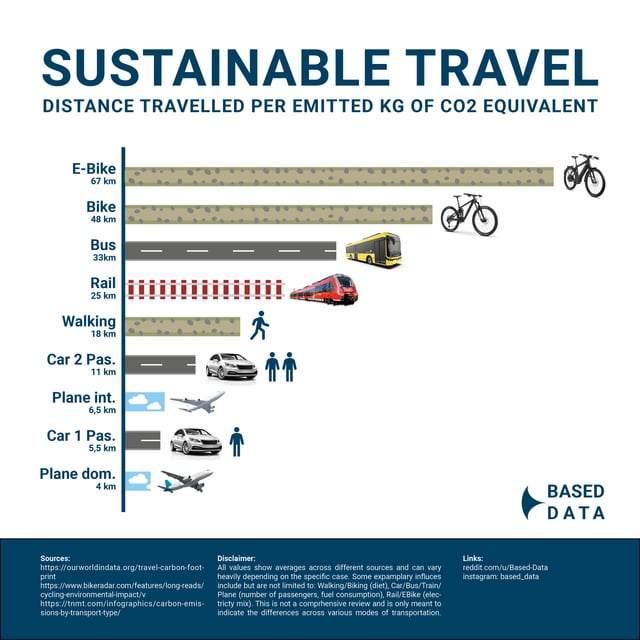this post was submitted on 20 Jun 2023
13 points (100.0% liked)
Solarpunk Travel
649 readers
1 users here now
Community for those focused on sustainable travel. Our society's current levels of energy intensive and frequent travel are not compatible with life on a finite planet. We advocate for long-term slow travel to see the world, and low energy local travel to deeply experience your community. Green washing free zone.
related to sustainable travel:
- !trains@midwest.social ← open to all train chatter (but note the instance is centered on the midwest USA)
- !rail@feddit.uk ← UK Rail and Trains
- !ukpublictransport@feddit.uk ← UK public transport
related to travel generally:
- !travel@eviltoast.org ← general travel
- !main@lemmy.globe.pub ← general travel (this whole instance devoted to travel but note there is an instance-wide no politics rule there)
- !traveltips@feddit.uk ← Europe focus
The communities listed above are decentralized. Centralized instances are omitted as they go against the fedi purpose and it’s better to cultivate digital rights in the free world. That means instances that have a disproportionately large population or are centralized on Cloudflare are not listed.
founded 1 year ago
MODERATORS
you are viewing a single comment's thread
view the rest of the comments
view the rest of the comments

Why should regular bikes use more energy, given they're only manufactured once (as are bikes), have no degenerating batteries and don't need electricity are less efficient than ebikes?
It's because fuelling humans with food (particularly with a typical western diet) and converting it to motion with digestion and muscle emits more carbon than generating electricity (with a typical grid mix) and running it through batteries and a motor.
Of course, most humans could probably do with the exercise anyways; carbon intensity isn't the only thing worth considering.
That furphy's been disapproved so many times it's weird it keeps getting brought up. It's literaly not the case, you can expend the energy to cycle the 5km to work and don't need to eat extra to fuel it. You're not racing the TdF.
As an asdie, I have an ebike and an escooter (better again IMO in cities then an ebike and less resource and maintence intensive) and a I use the escooter and non ebike by far the most
I'd agree escooters are more efficient. The only disadvantage is that you can at least get a little bit of exercise for all that time you're riding the ebike.
It's time to build net positive gyms...
Yeah, doesn't quite make sense unless it's implying that it's within the average lifespan of the vehicle. Maybe then you can get further on an eBike than you can on an equivalent regular bike before it falls apart?
Doubtful, given that it is much more sustainable replacing cogs and chain wheels only than to also replace the motor...
But you also pedal way less on an eBike. Not sure if it's enough to offset that though.
You mean while putting more force on cogs and chain?
Does it though?
Edit: Yes it does:
"Because of the added weight and torque, e-bike systems do produce more wear and tear on “consumable” parts. You’ll likely have to replace things like chains and brake pads more frequently, and you'll want to keep an eye on tire wear and wheel parts like spokes, which are under more stress from the torque of the motor."
So yeah, no clue how they got to the conclusion that eBikes are more energy efficient than regular bikes.
I don't think this is true. Ebikes are actually not very sustainable: https://solar.lowtechmagazine.com/2023/02/can-we-make-bicycles-sustainable-again/
But if it replaces a car, it is still very nice!
Thank you for clarification! That fits what I presumed.
(Does not take nutrition into account, though. So this leaves the question whether that indeed is the most significant contribution in manual transport...)
It's strange that they didn't include the food offset by the ebike though. This link tries to give a comparison between the two accounting for a typical European diet (which is also far more sustainable than the typical American diet).
https://www.bikeradar.com/features/long-reads/cycling-environmental-impact/
I think it is reasonable to ignore food, since it will be more or less equal to the energy you would spend exercising in other ways (jogging, gym, ...). Especially when commiting in a city (<10km).
But your link still shows a nice overview when taking that into account specifically!